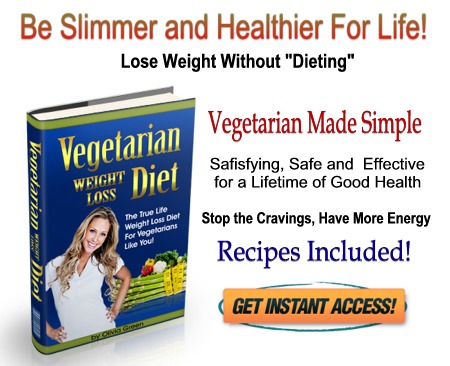Vegetarian Protein
Getting enough protein in the vegetarian diet is
vital to achieving a balanced, healthy diet. Most people
recognize meat and dairy products as being high in protein, but
many may not realize that plants also yield substantial protein.
To the vegetarian, the 'quality' of plant protein is the issue.
A lot of plant protein is unusable to the vegetarian unless
maximized by combining the right foods together.
Protein is made up of amino acids. The human
body needs certain amino acids in specific combinations in order
to be able to use enough of the available protein to ensure
health. Eggs contain a nearly ideal combination of amino
acids. Consequently, nearly 95% of egg protein is usable by
the human body. The next highest percentages of complete and
usable protein come from fish, meat and dairy products.
Fortunately for the vegetarian, plant proteins do
contain good quantities of amino acids, but often they are missing
various essential amino acids (as required by the human body in
order to be able to utilize the protein). Consequently, most
plant food sources, on their own, don't provide enough usable
protein to the vegetarian diet.
The protein solution for vegetarians is called
'food combining'. By combining two or more complementary
protein foods, it's possible to vastly increase the amount of
useable protein and easily meet the daily requirement listed on
the
Vegetarian Health - Nutrition Fact Sheet.
To maximize usable protein in the vegetarian diet,
use the following rules of thumb for food combining:
-
Grain plus Dairy - Examples are macaroni and
cheese, rice pudding made with milk, milk and cereal and cheese
sandwiches.
-
Legumes plus Grains - Examples include rice and
beans, bean, pea or lentil soup and bread, and refried beans
with tortillas.
-
Seeds plus Legumes - Hummus (made with chickpeas
and sesame seeds) and a snack of sunflower seed and peanuts are
examples.
It's important that vegetarians eat protein foods that have
complementary amino acid levels so that the essential amino acids
missing from one protein food can be supplied by another.
Keep in mind that soybeans are a wonderful
exception. Soy products such as soy milk and tofu are
especially high in complete proteins on their own, and therefore
are very useful to the vegetarian diet. The
variety of delicious soy products (such as tempeh, soy
"hot dogs" and "burgers," Tofutti brand "ice cream,"
among others) available in health and grocery stores ensure tasty
ways for the vegetarian to meet their daily protein requirement.
In addition, vegetarians can seek out foods that are "protein-fortified".
For example, many supermarkets offer
"protein-fortified" pasta and bread (very often they have soy added).
It was once believed that complementary proteins
had to be consumed at every meal. We now know that intentional combining
at each meal is not necessary for a complete vegetarian protein.
As long as you eat a variety of plant foods, such as brown rice, corn,
nuts, seeds, whole grains, and wheat within each 24 hour period, the
vegetarian's protein needs should be easily met.




